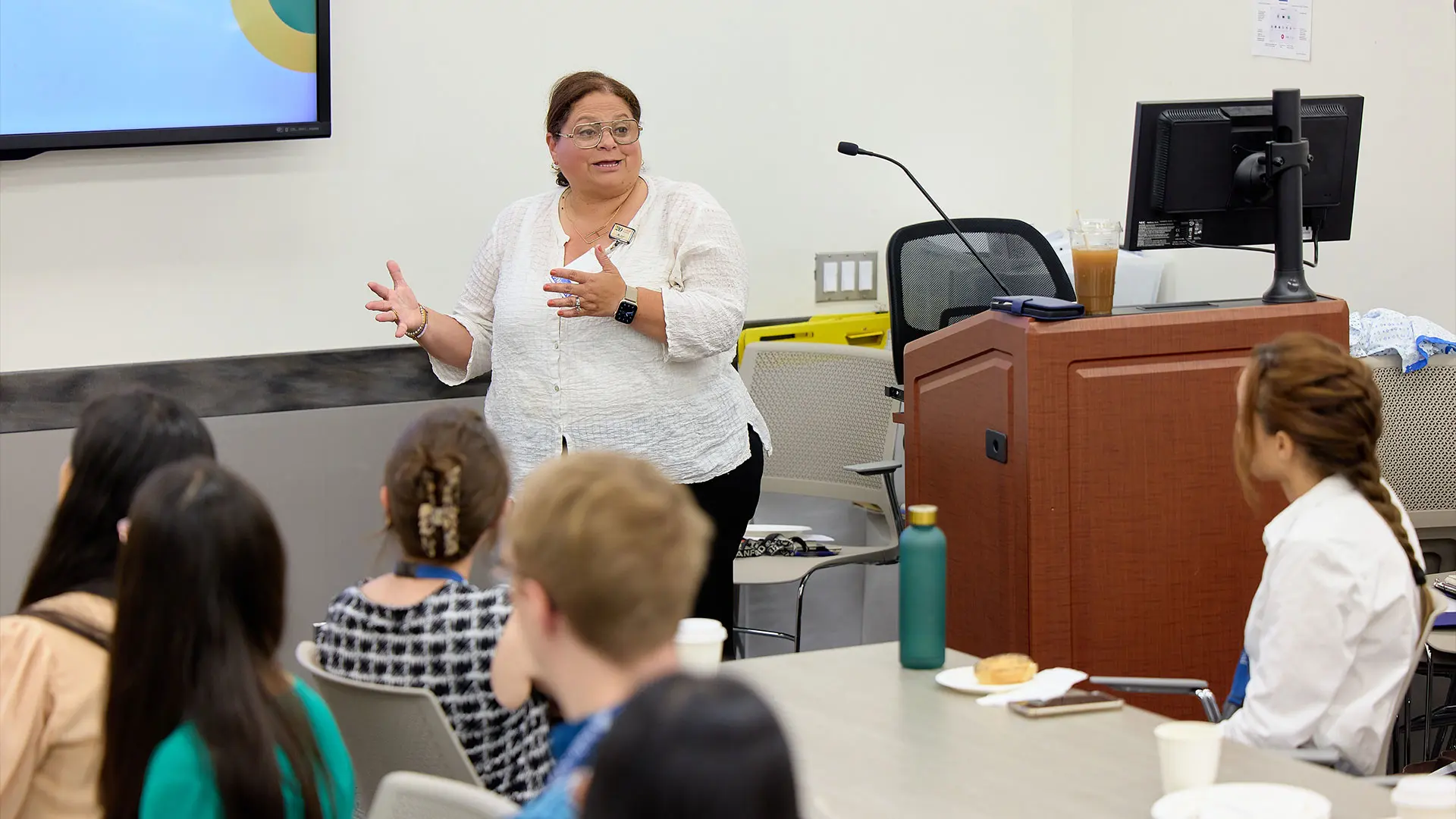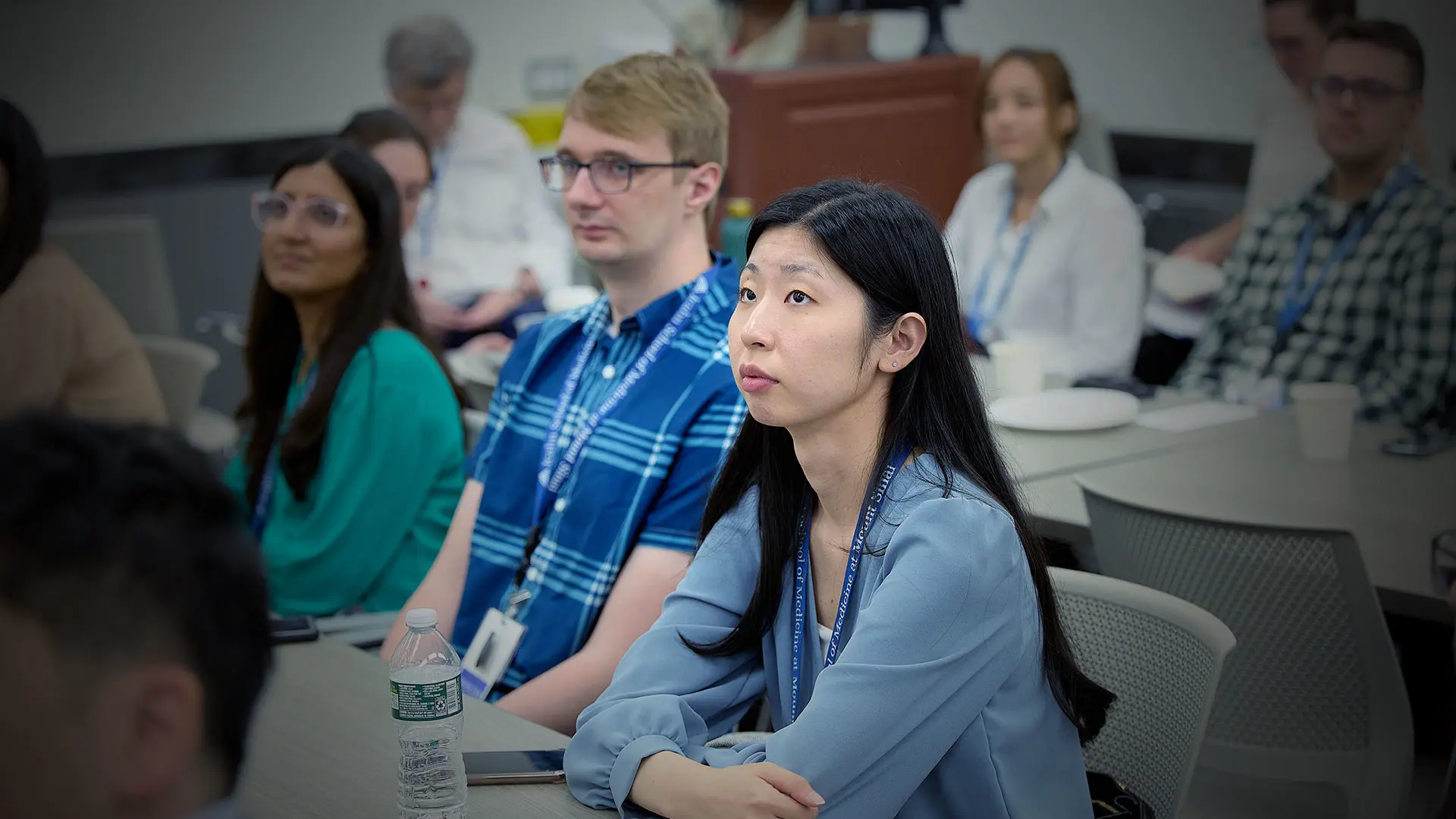Changing demographics in the U.S. population point to a growing need for physicians trained in geriatrics and palliative medicine. According to the U.S. Census Bureau, the number of Americans aged 65 and older is projected to increase from 58 million in 2022 to 82 million by 2050, making up 23 percent of the total population, up from 17 percent. At the same time, the aging population is becoming more racially and ethnically diverse, with 40 percent expected to identify as non-white.
This puts Mount Sinai, with its strong emphasis on geriatrics and palliative medicine, and its commitment to addressing disparities in health and health care delivery, uniquely positioned to train a new generation of doctors, researchers, and hospital leaders to meet the growing needs of an aging, diverse population.
The Brookdale Department of Geriatrics and Palliative Medicine at the Icahn School of Medicine at Mount Sinai is the nation’s largest training program in the field and has trained one out of five geriatricians and palliative medicine physicians nationwide. With two new training programs, it will continue its role as a worldwide innovative leader in educational training for young doctors.
The Brookdale Department attracts physicians to the field and gives doctors in other medical specialties additional training to treat older patients and those living with serious illness. Departmental leadership believes that exposing medical students and residents to geriatrics and palliative medicine early in their training can lead more of them to pursue careers in those specialties or at least give them the skills to care for the aging patients and those with serious illness whom they see in their own specialties.
“We’re constantly thinking about how to train more doctors to care for an increasingly older and sicker population,” says Helen M. Fernandez, MD, Vice Chair of Education and Professor of Geriatrics and Palliative Medicine at the Icahn School of Medicine at Mount Sinai. “We believe that our fellowship programs, and new ones that we’re currently developing, will help address this crucial gap.”

“We are continually striving to create flexible training programs that meet population needs and the interests of our residents, who then see opportunities for including geriatrics and palliative medicine into other fields they’re interested in pursuing,” says Helen M. Fernandez, MD, Vice Chair of Education and Professor of Geriatrics and Palliative Medicine at the Icahn School of Medicine at Mount Sinai.
The Brookdale Department has partnered with The Accreditation Council for Graduate Medical Education (ACGME) to create new flexible training programs allowing doctors to pursue training in their chosen specialties, while also providing opportunities for professional development in geriatrics and palliative medicine. Mount Sinai’s wide range of innovative fellowship programs that offer clinical, research, and leadership opportunities, include the following:
The Integrated Medicine and Geriatrics Residency and Fellowship Program is a four-year program offering mentorship and clinical rotations for young doctors interested in geriatrics. This program provides specialized geriatrics clinical rotations, individual mentorship, and additional training opportunities for physicians in their internal medicine residency followed by a year-long geriatrics fellowship in their fourth post-graduate year. Residents work on geriatrics research projects focusing on quality improvement, patient safety, and other areas of interest.
In their fourth year, which would be their traditional geriatrics fellowship year, residents complete their clinical requirements in six months and use their remaining six months to develop expertise as researchers, educators, or other areas on which they want to focus. At the end of the four years, they are eligible to sit for their geriatric boards and become board certified geriatricians.
This program, launched in 2020 at three hospitals nationwide, including The Mount Sinai Hospital, has grown to 14 sites, including Mount Sinai Morningside and Mount Sinai West.
A second innovative training program that recruits new doctors to palliative medicine is the ACGME AIRE-approved Mid-Career Hospice and Palliative Medicine Fellowship. This is for established, board certified doctors practicing for at least five years, who want additional training in palliative care but don’t have the flexibility to leave their current practices for a year to complete their training. These physicians come from many different specialties in hospitals around the New York area. The program, which is competency based and time variable, allows doctors to continue in their current jobs as attending physicians and spend about 20 percent of their time training in palliative medicine. Since the program’s launch, doctors specializing in emergency medicine, family medicine, and internal medicine have completed the fellowship.
“This has been an incredible pipeline to bring doctors into palliative care because when they return full time to their positions, they become champions of palliative medicine and bring a palliative lens to every patient they meet,” says Dr. Fernandez. “A vascular and trauma surgeon recently joined the program, which is highly significant, given the low-representation of palliative care specialists in surgery.”
A similarly approved Mid-Career Geriatric Medicine Fellowship enrolled its first candidate this fall—a hospital medicine doctor from Mount Sinai. Reem Aoun, MD, became the first mid-career geriatric medicine fellow in the country. At present, Mount Sinai is the only academic medical center in the country to offer this program.
“We are continually striving to create flexible training programs that meet population needs and the interests of our residents, who then see opportunities for including geriatrics and palliative medicine into other fields they’re interested in pursuing,” says Dr. Fernandez. “It’s very exciting.”
